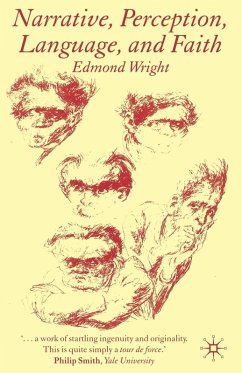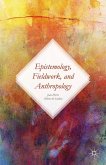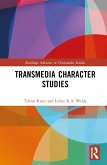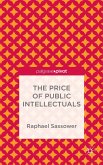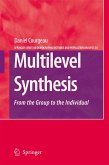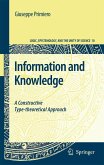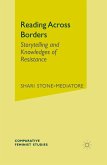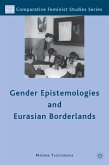Many, from a wide range of disciplines, claim that narrative is fundamental to being human. This engaging book presents a coherent thesis to that effect, connecting the Joke and the Story (with all that comedy and tragedy imply) not only with our perception of the world, with the character of faith and with our faith in each other.
'Wright offers a highly illuminating take on the way stories inform and inflect our everyday lives - from ordinary speech and jokes to high-risk politics and faith. A philosophical eye-opener for experts and amateurs alike'. - Richard Kearney, Charles Seelig Professor in Philosophy, Boston College
'...a banquet of intellectual nourishment on matters of logic, language, metaphysics, ethics, aesthetics, and religion, showing how inquiries in these several domains intercalate against the backdrop of the uses of narrative. This is no ordinary philosophy book. It will remain on the book shelves for some time to come.' - Calvin O. Schrag, The George Ade Distinguished Professor of Philosophy Emeritus, Purdue University
'Narrative, Perception, Language, and Faith is a work of startling ingenuity and originality. This is quite simply a tour de force. Edmond Wright's thoughtful, engaging and erudite book transcends the conventional barriers that have long divided semiotics from pragmatism, analytic from normative philosophy, materialist realism from social constructivism. At once charming and deeply serious, in his journey from the structure of the joke to the nature of ethical being Wright finds intellectual connections where nobody has even thought of looking. This study will be recognized as a major contribution not only to philosophy, but also to the broader field of social and cultural theory.' - Philip Smith, Associate Professor, Department of Sociology, Yale University, USA
'This is a rich and challenging book, ranging from contested philosophical positions to our most mundane assumptions about language and reality. In doing so, Narrative, Perception, Language, and Faith opens a new avenue for reconciling a broad range of research positions in ontology, epistemology, realism, idealism, the relation between logic and natural language, language philosophy, and linguistics in the Saussurean tradition...I would not be at all surprised if this book were to be received as a major breakthrough and spawn a series of new, and long overdue, investigations into the crucial relation between language and perception.' - Horst Ruthrof, Emeritus Professor, Murdoch University, Australia
'Can one imagine a greater contrast than the one between the detached and argumentative, commonsense even, Anglo-Saxon analytic philosophy approach, and the highly speculative and dense style of Lacanian psychoanalysis? Edmond Wright's book brings these two approaches together - and the result is no less than magic, a new, third, space of modern thought. Nothing in psychoanalysis and in analytic thought will look quite the same after reading this book.' - Slavoj Zizek, Professor of Philosophy and Psychoanalysis, The European Graduate School, Switzerland and the University of Ljubljana, Slovenia
'...a highly imaginative and provocative exploration of themes common to jokes, stories, perception and language, in which ambiguity is thecentral element...[Wright] exploits to great effect the best type of Nietzschean approach: a combination of literary and philosophical themes, both in the fascinating examples drawn upon, as well as the ideal set forth and defended. The book is a richly rewarding study of the role of narrative in philosophical understanding.' - Barry Maund, Associate Professor, Dept of Philosophy, University of Western Australia
'a magisterial book that is nothing less than a grand theory of discourse. The breadth of scholarship that he takes up and coordinates is breathtaking' - Rhetoric Society Quarterly
'This is a controversial book, i.e. it is original, important, clears the mind in salutary fashion, and will incite heated discussion... [Wright's] book is written with the greatest clarity, casts profound new light on language and meaning, and should become essential reading whatever one's intellectual discipline.' - Theory
'One of the book's most impressive aspects, undoubtedly, is its panache, which arises from the wide range of evidence it uses. Wright does an admirable job of integrating playfulness with intellectual virtuosity; in doing so he has rendered his complex synthesis accessible and enjoyable to a wide range of readers.' - Katherine Saunders Nash, Partial Answers
'...a banquet of intellectual nourishment on matters of logic, language, metaphysics, ethics, aesthetics, and religion, showing how inquiries in these several domains intercalate against the backdrop of the uses of narrative. This is no ordinary philosophy book. It will remain on the book shelves for some time to come.' - Calvin O. Schrag, The George Ade Distinguished Professor of Philosophy Emeritus, Purdue University
'Narrative, Perception, Language, and Faith is a work of startling ingenuity and originality. This is quite simply a tour de force. Edmond Wright's thoughtful, engaging and erudite book transcends the conventional barriers that have long divided semiotics from pragmatism, analytic from normative philosophy, materialist realism from social constructivism. At once charming and deeply serious, in his journey from the structure of the joke to the nature of ethical being Wright finds intellectual connections where nobody has even thought of looking. This study will be recognized as a major contribution not only to philosophy, but also to the broader field of social and cultural theory.' - Philip Smith, Associate Professor, Department of Sociology, Yale University, USA
'This is a rich and challenging book, ranging from contested philosophical positions to our most mundane assumptions about language and reality. In doing so, Narrative, Perception, Language, and Faith opens a new avenue for reconciling a broad range of research positions in ontology, epistemology, realism, idealism, the relation between logic and natural language, language philosophy, and linguistics in the Saussurean tradition...I would not be at all surprised if this book were to be received as a major breakthrough and spawn a series of new, and long overdue, investigations into the crucial relation between language and perception.' - Horst Ruthrof, Emeritus Professor, Murdoch University, Australia
'Can one imagine a greater contrast than the one between the detached and argumentative, commonsense even, Anglo-Saxon analytic philosophy approach, and the highly speculative and dense style of Lacanian psychoanalysis? Edmond Wright's book brings these two approaches together - and the result is no less than magic, a new, third, space of modern thought. Nothing in psychoanalysis and in analytic thought will look quite the same after reading this book.' - Slavoj Zizek, Professor of Philosophy and Psychoanalysis, The European Graduate School, Switzerland and the University of Ljubljana, Slovenia
'...a highly imaginative and provocative exploration of themes common to jokes, stories, perception and language, in which ambiguity is thecentral element...[Wright] exploits to great effect the best type of Nietzschean approach: a combination of literary and philosophical themes, both in the fascinating examples drawn upon, as well as the ideal set forth and defended. The book is a richly rewarding study of the role of narrative in philosophical understanding.' - Barry Maund, Associate Professor, Dept of Philosophy, University of Western Australia
'a magisterial book that is nothing less than a grand theory of discourse. The breadth of scholarship that he takes up and coordinates is breathtaking' - Rhetoric Society Quarterly
'This is a controversial book, i.e. it is original, important, clears the mind in salutary fashion, and will incite heated discussion... [Wright's] book is written with the greatest clarity, casts profound new light on language and meaning, and should become essential reading whatever one's intellectual discipline.' - Theory
'One of the book's most impressive aspects, undoubtedly, is its panache, which arises from the wide range of evidence it uses. Wright does an admirable job of integrating playfulness with intellectual virtuosity; in doing so he has rendered his complex synthesis accessible and enjoyable to a wide range of readers.' - Katherine Saunders Nash, Partial Answers

